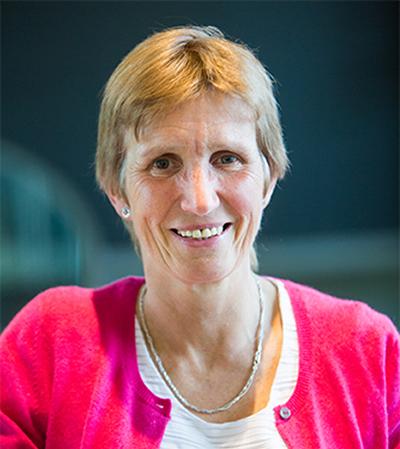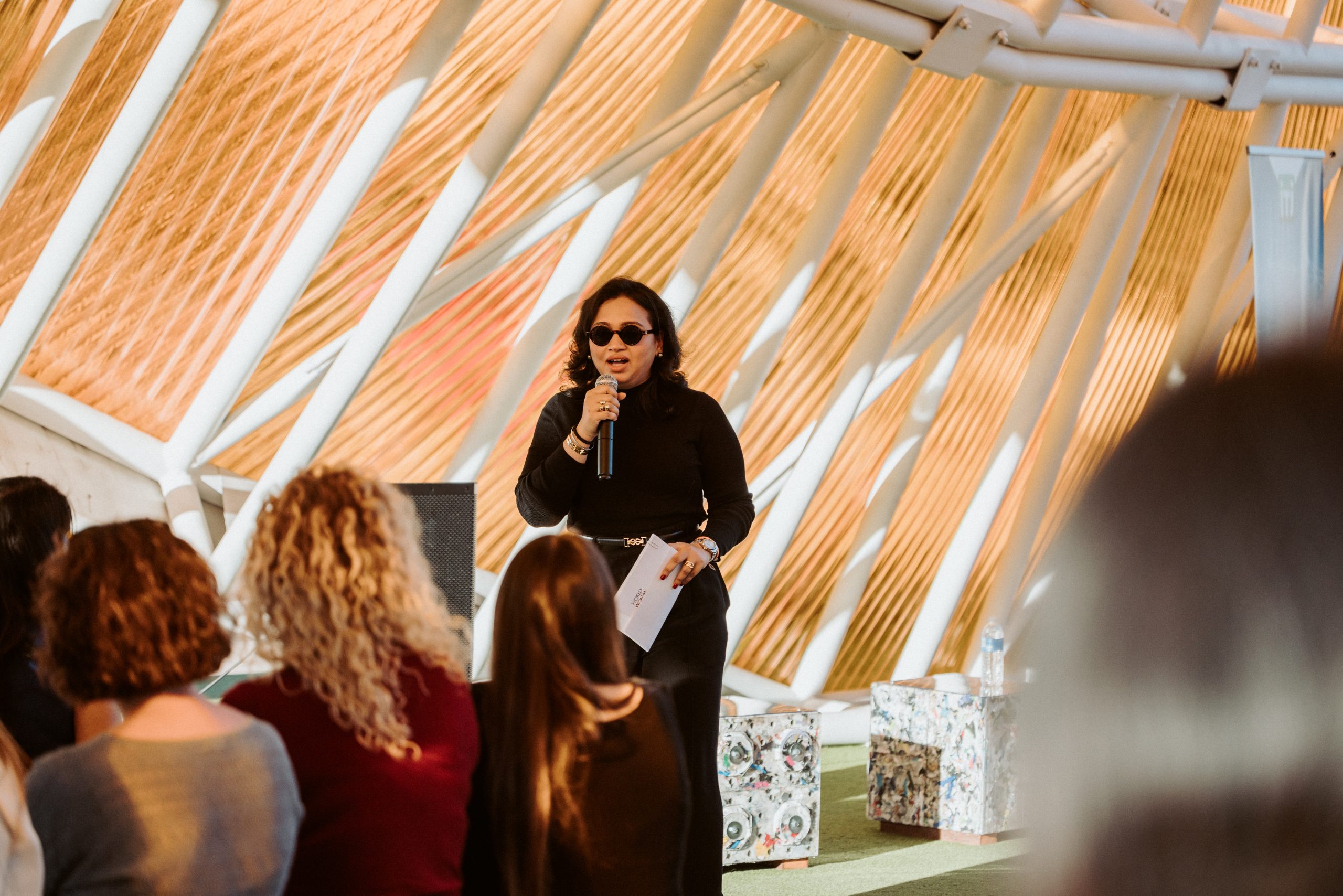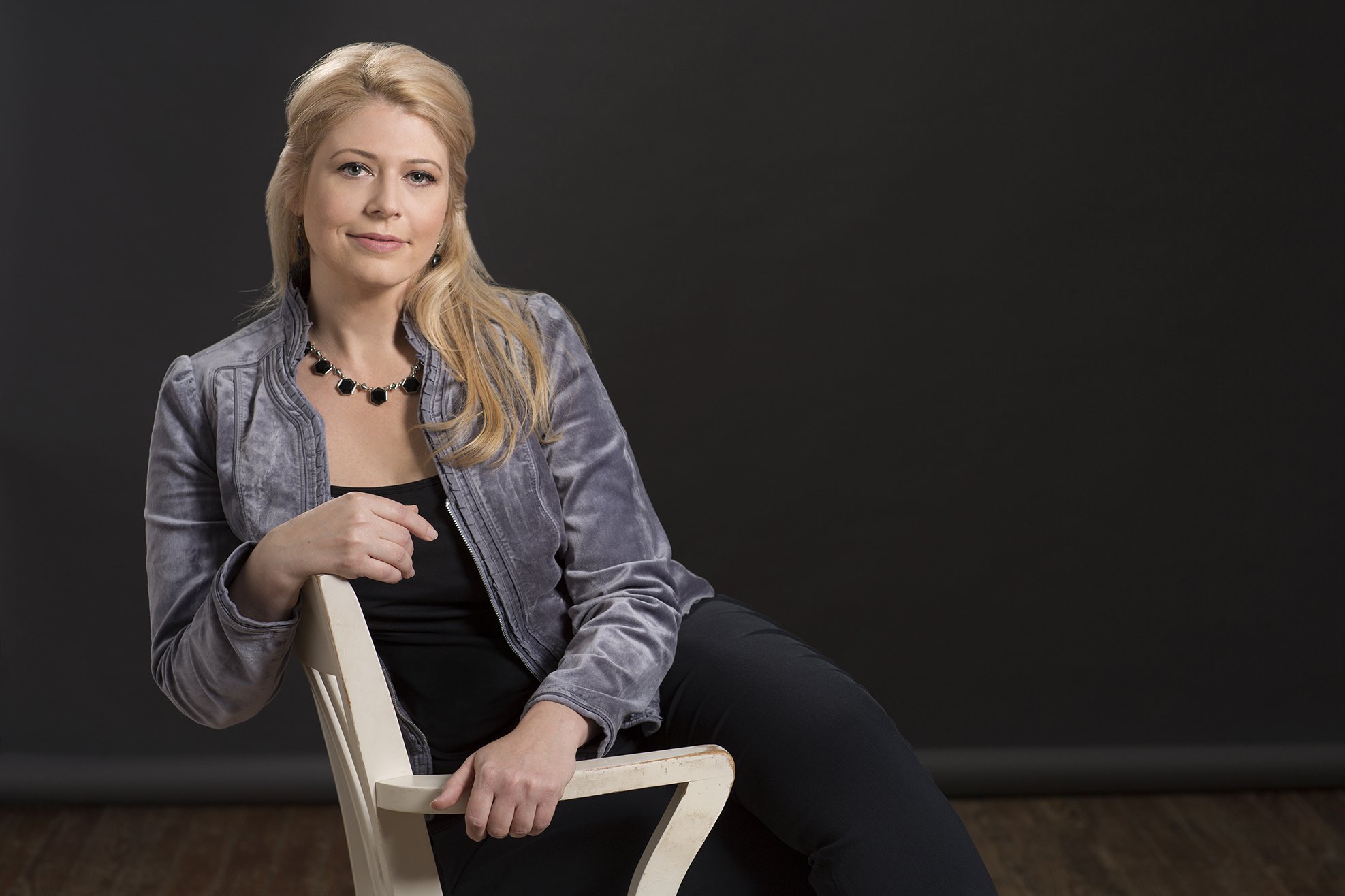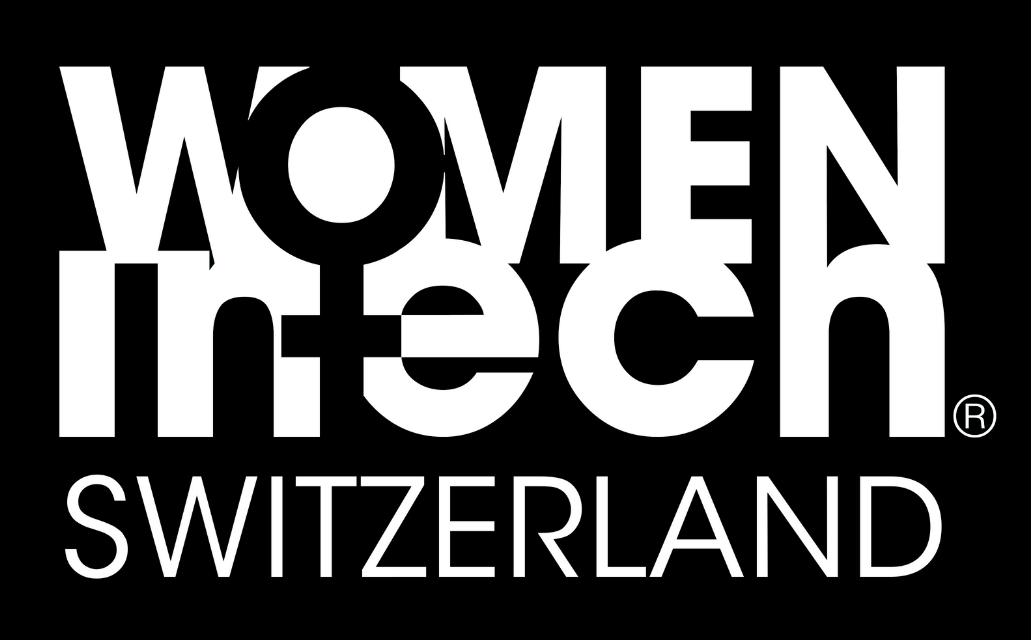Even in highly developed countries, big cities have districts where “poorer” people live—but to simply describe them as such is to oversimplify the case. People in these neighborhoods face a variety of different challenges. Some have been hit hard by changing economic conditions, while others may be immigrants adjusting to a new culture, and many have lives marked by high stress and low resources. It’s a tough environment for women, and health problems make it even tougher, as they often struggle to find appropriate care and guidance.
Dr. Anne Connolly has led efforts across the United Kingdom to improve women’s health care in deprived urban areas. Starting with her own work as a physician in Bradford, England, she expanded the campaign by building out a U.K.-wide network called the Primary Care Women’s Health Forum. For this she received a prestigious award last year, the MBE (Member of the Order of the British Empire), given at the annual Queen’s Birthday Honours. World Woman Hour in collaboration with Organon now honors Anne as one of 60 women leading change in the world.
Q: Anne, how did you come to do the work you’re doing. Can you trace your story for us?
Dr. Anne Connolly: When I was very young, I was in a car accident and had to spend a couple of months in hospital, so I got a fascination for health care. Later I was lucky enough to be able to go to medical school, where I started to be interested in women’s health care. Once I had qualified as a general practitioner, my husband and I went to work in a mission hospital in rural Zimbabwe. I looked after the women’s health and maternity sections of the hospital. It was there that I really started to understand the awful experiences that many women had to tolerate, when they didn’t have access to good health care and when they also had to bear the main burden of care for their children and families.
Then, back here in the U.K., we’ve worked for the last 35 years in inner-city Bradford. Bradford has a very rich culture and it’s very diverse, but there are many people who are very deprived. I wanted to continue to develop my women’s health skills so I took on extra training for that. And, in the out-of-hospital setting, I was fortunate to be supported by local clinicians and local teams so that we could really start to deliver care that was right for the women in the community
It then became obvious that what I was doing for my own patients also needed to be done across the whole system [in Bradford]. And then it became apparent that many other clinicians around the country had this passion for women’s health. Knowing how under-resourced and undervalued women’s health care has been, we saw that we should start a network. The network would give support, deliver education, and help us to improve the care that women were getting in their own local settings. So two of us developed the Primary Care Women’s Health Forum, which now has something like 12,000 members of various multidisciplinary teams.
We have nurses, doctors, pharmacists, physiotherapists—whoever wants to improve the care of the women in a local environment. We’re now invited to strategic decision making on a national footprint. And we’re starting to make a difference in the quality of care that women get, where they want it, closer to their homes.
Q: Can you say more about the passion that drives you, and where it comes from?
Anne: I think it comes from recognizing the inequality that exists for women, when you look at the health issues that we can have compared to the care that’s often provided. We have the responsibility for reproductive health. We have periods that come every month, and for many women, that’s a big problem if they’ve got painful periods or lots of bleeding, which can impact their chances with education, or with jobs and opportunities. Then we get to menopause, and we have to go through the symptoms of that. So there’s a real inequality for many women, if they can’t understand that maybe it’s not normal to have certain symptoms, or that they can get help that will allow them to function better in the workplace and in their families.
And it’s more than that. Within deprived communities, there’s the inequality of being a woman, and there is also an inequality within the inequality. Looking at myself, I can navigate hurdles because I’ve got a car; I can speak English as a first language; I’ve got access to the internet. If hurdles are put in my way, I can get around them. But there are many women who can’t.
So my passion is to make sure that all women get the same opportunities in health care. I want them to understand that if something isn’t right, to get early help, and then to understand the choices of what they can do with that help. That’s why the passion is to develop local services, and to upskill local clinicians—and it’s not just about the doctors. Many times it’s about the nurse, or the health care assistant, or the administration team or the social support network. It’s about all of us working as a team to deliver the right care for the right person, at the right place and the right time.
Q: What are some difficulties or setbacks you’ve faced along the way? How did you deal with them?
Anne: I realized that it was important to become part of the decision making process about where public finances would be spent and how to improve local services. And you can’t do that unless you are part of the committees that are making those decisions. It’s not my favorite role. I much prefer to be doing the clinical work. But I joined the local decision making board and spent many hours discussing concerns that actually are not my passion. Then I constantly had to try and raise issues about women’s health, which is under-prioritized but so important—because if we get it right for women, we get it right for the families and for the system.
And many times, I would hit a barrier. I would bring a proposal and the answer might be “Well, we don’t have extra funding for that. It isn’t our priority at the moment.” But I had learned from those women in Zimbabwe that it’s important to be resilient. So I’d go back to work with the team, or we would talk to other members of the committees, and then I’d come up with another proposal or another way of looking at it. And again I might get knocked back. But the fight was so right that we kept going.
Nationally, we now sit on committees on behalf of the Primary Care Women’s Health Forum, and we constantly raise the importance of making services right locally. Not just in the specialist units, but locally where women really want to go at their first port of call. Because that is where we can understand the complexities of the populations we work with—recognizing that we might get our services right for one group of the population, but it needs to be slightly different for another group.
Q: Could you share a key lesson or lessons you’ve learned?
Anne: One is that passion doesn’t get you everywhere. My passion often got the better of me, particularly in the earlier days of my career, before I learned how to be more strategic. Sometimes the “bull at the gates attitude” is off-putting for others, and you just get knocked down and then you take it personally, which is never great. If I was starting out again, I think I’d be more reflective on the advances we’ve made, and how better to navigate some of the negotiations that are so important to make the improvements that you want.
Q: Looking ahead, what are the main improvements needed, and how can we get there?
Anne: Women’s health care needs to improve in a number of ways. It’s been under-resourced. The needs of women have been under-recognized, and health problems specific to women have been under-researched. There has to be comparative esteem for women, so that the care they get and the recognition of their needs is the same as for other health care concerns.
Not only are women half the population, they carry the burden of reproductive health, and they are generally the main supporters of family life and bringing up the next generation. So we know that getting a woman’s health right is not just right for that woman. It’s right for everyone around her; it’s right for the social system, and it improves her opportunities within the system. The effects are holisitic, and we need to be better about recognizing the holistic care that women need. There’s the physical well-being, the social well-being, and the psychological impact of having women’s health concerns.
And here again, it’s not just about the doctors and specialists. Women are much more likely to discuss their issues with a nurse or health care assistant, or another member of the team. They might want to test out the problem they’re having before they decide that it’s big enough to go and bother the doctor. So, at the Primary Care Women’s Health Forum, we acknowledge the need for multidisciplinary teams. We know that each of us can bring something to the table. And we always recognize that we are much stronger as a team than going out as individuals to try to change the world.






























